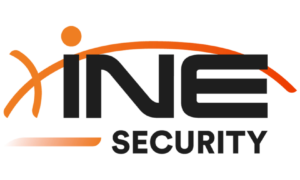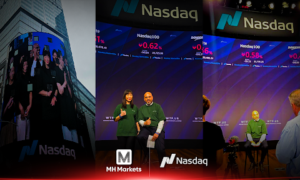Investing in today’s digital economy has become more streamlined than ever before. With the shift from physical share certificates to digital securities, a Demat account has become a foundational requirement for every investor. A Demat account, or dematerialized account, enables individuals to hold their securities electronically, simplifying the entire investment process while increasing security and accessibility. From managing a variety of securities to enabling advanced trading strategies, a Demat account is essential for anyone serious about building wealth in the stock market.
One of the first steps to achieving financial success in the stock market is to open demat account. This account acts as a digital locker for all types of investments, including stocks, bonds, ETFs, and mutual funds. It eliminates the need for handling physical certificates, reducing paperwork and the risk of loss, forgery, or damage. For those who want to leverage additional opportunities, a Demat account also enables Margin Trading Facility (MTF), allowing investors to trade with borrowed funds. This can amplify gains, although it requires careful planning due to the increased risk. With a well-managed Demat account, investors can unlock new avenues for growth and manage their portfolios with greater ease.
This article will explore the various advantages of having a Demat account, from increased security and convenience to access to MTF and other advanced trading tools. By understanding how a Demat account enhances the investment process, today’s investors can leverage it effectively to navigate the market with confidence and make the most of their financial goals.
What is a Demat Account and Why is it Essential?
A Demat account serves as a digital repository for holding and managing securities electronically. Introduced in India in the late 1990s, it revolutionized the investing landscape by eliminating the need for physical share certificates. This shift to electronic records simplified the trading process and made it more secure. In today’s fast-paced market, a Demat account is crucial for any investor, as it allows for quicker transactions, reducing the lag time between buying and selling securities. With the digital storage of shares, investors no longer have to worry about loss, theft, or forgery of physical certificates, making it a safe and reliable method for managing assets.
Furthermore, a Demat account provides a comprehensive overview of one’s portfolio, displaying holdings in stocks, mutual funds, and even government securities. This centralization enables investors to monitor and analyze their assets with ease, ensuring they have real-time insights into their investments. Moreover, the ease of transaction offered by Demat accounts has brought a new level of flexibility to investing. For instance, investors can buy or sell shares within seconds, enabling them to take advantage of price movements in real time. With a Demat account, the entire trading process is simplified, secure, and efficient, making it a valuable tool for seasoned investors and newcomers alike.
In addition to being a digital locker for assets, a Demat account is also essential for accessing advanced trading options such as MTF. With MTF, investors can leverage their funds to take larger positions in the market, magnifying both potential gains and risks. This feature is particularly attractive to active traders who seek to maximize returns in the short term, but it requires a robust understanding of market dynamics and risk management. For those new to MTF, a Demat account offers a gateway to learning and exploring more sophisticated trading strategies, adding another dimension to their investment portfolio.
Benefits of a Demat Account: Convenience, Security, and Efficiency
One of the standout benefits of a Demat account is the convenience it offers. By consolidating all securities in one account, investors can access and manage their entire portfolio from a single platform. This eliminates the need for maintaining multiple records or handling physical certificates, significantly reducing paperwork and administrative hassles. In addition, with a Demat account, dividend payouts, interest, and other benefits are credited automatically, eliminating the need for manual tracking. For those looking to streamline their finances, a Demat account is an invaluable tool that brings order and clarity to investment management.
Security is another vital aspect. With physical certificates, there’s always a risk of loss, theft, or damage. A Demat account mitigates these risks by storing shares in digital form, protected by multiple layers of encryption and security protocols. Additionally, most brokerage firms offer insurance coverage for assets held in Demat accounts, providing an extra layer of protection for investors. This security feature is particularly appealing to those with high-value portfolios, as it ensures that their investments remain safe and accessible at all times. In an era where online security is paramount, having a Demat account offers peace of mind and confidence in managing one’s financial assets.
The efficiency of Demat accounts extends to the settlement process as well. Traditionally, it would take several days to settle a trade due to the manual handling of share certificates. Now, trades can be settled within a day or two, allowing investors to access their funds or reinvest quickly. This reduced settlement time is especially advantageous for active traders who rely on quick transactions to capitalize on market movements. By enabling faster, safer, and more efficient transactions, a Demat account plays a pivotal role in modern-day investing, offering investors a streamlined experience with minimal delays.
Unlocking Advanced Trading Features with a Demat Account
Beyond the basics of holding and managing securities, a Demat account serves as a gateway to advanced trading features like MTF and derivatives trading. Margin Trading Facility, or MTF, allows investors to borrow funds from brokers to buy additional stocks. This facility amplifies purchasing power, enabling investors to take larger positions in the market. MTF can be particularly beneficial during market rallies, where investors may want to increase their exposure to capture higher returns. However, MTF also carries higher risk, as it involves borrowed capital, and losses can be magnified in a volatile market. Therefore, it’s important for investors to use MTF wisely, with a well-thought-out strategy and risk management plan.
Apart from MTF, a Demat account also grants access to derivatives trading, including options and futures. These instruments provide additional opportunities for profit, allowing investors to hedge their positions, speculate on price movements, or generate income through strategies like covered calls. Derivatives require a deeper understanding of market trends and can be complex for beginners. However, with a Demat account, investors have the option to explore and learn these tools gradually. For experienced traders, derivatives can serve as an essential component of a diversified portfolio, helping them manage risks while seeking profitable opportunities.
Furthermore, Demat accounts are increasingly integrated with advanced trading platforms that offer research tools, real-time data, and market analysis. This accessibility to data and analytics can help investors make informed decisions, whether they’re buying shares, engaging in MTF, or trading derivatives. With a Demat account, investors have access to a comprehensive suite of tools that enable them to develop sophisticated strategies and navigate the market with greater confidence.
How to Open a Demat Account and Start Investing
Opening a Demat account is straightforward, and most brokerage firms offer online applications for added convenience. To begin, investors need to choose a reputable broker, compare fees, and evaluate the services offered. Brokerage charges, annual maintenance fees, and transaction costs vary across providers, so it’s essential to select a provider that aligns with one’s trading volume and investment goals. Once a provider is selected, the next step involves completing the application process, providing identification documents, and undergoing a basic verification process.
For those who plan to use MTF, it’s advisable to review the broker’s policies and requirements for margin trading. Brokers often have specific criteria and risk management guidelines for MTF users, and understanding these policies can help investors make the most of their borrowing facility. Upon approval, investors can start exploring the stock market, buying securities, and leveraging MTF to expand their portfolios as they gain confidence and experience.
A Demat account provides investors with the flexibility to diversify across asset classes, making it easier to build a balanced portfolio. Stocks, ETFs, bonds, and mutual funds can all be held in a single account, simplifying the investment management process. Whether investors are looking to build long-term wealth or take advantage of short-term opportunities, a Demat account provides the versatility to pursue multiple financial strategies, making it an indispensable tool in today’s investment landscape.
The Evolving Role of Demat Accounts in Financial Freedom
In the years since their introduction, Demat accounts have transformed the way people invest, making it easier than ever to build wealth through the stock market. By enabling secure, paperless transactions and providing access to advanced trading options, Demat accounts empower individuals to take control of their financial future. In today’s investment climate, where technology-driven tools like MTF offer exciting opportunities, a Demat account is more than just a storage facility for shares; it’s a dynamic platform that equips investors with the resources to grow and manage their wealth.
Whether you’re a new investor or an experienced trader, a Demat account provides the flexibility and security needed to thrive in the ever-changing financial market. By embracing this technology, investors can harness the full potential of the stock market, from traditional stock holdings to innovative trading strategies.



































